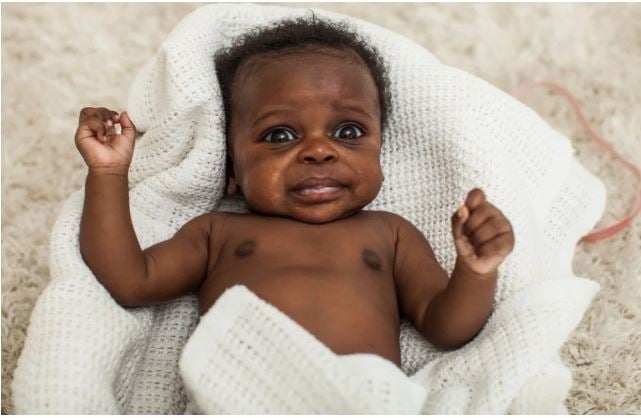If it seems like all your baby does is sleep, eat and deliver dirty diapers, things are exactly as they should be. Babies’ tummies are tiny and, compared with bigger kids and adults, reserve less fluid in their bodies.
Add that to their super-busy metabolism and you can see why they need to eat. Or, more accurately, drink around the clock. So you might be wondering: Why is my baby dehydrated?
If your baby is exposed to extreme temperatures or loses fluids due to vomiting, diarrhea or sweating, he can quickly become dehydrated. Here are the signs of dehydration along with how to prevent and treat it in babies.
Is My Baby Dehydrated? What Are The Signs Of Dehydration In Babies?
Is your baby dehydrated? Mild to moderate dehydration, which can often be treated at home, show symptoms like:
- Fewer wet diapers than normal
- Darker, more concentrated urine
- Lethargy, less activity
- Fussiness
- Parched mouth, lips
- No tears when crying
If your baby suffers from a prolonged illness with several symptoms that cause dehydration, severe dehydration may occur. Severe dehydration requires immediate medical attention. Symptoms include:
- Sunken eyes and fontanels (which are the soft spots on your baby’s head)
- Lethargy: Inactivity and not responding to touch or your voice
- Rapid heartbeat
- No tears when crying
- 12 or more hours since last wet diaper
- Dry mouth, no saliva, and chapped lips
- Pale skin that doesn’t snap back into place when pinched
Causes Of Dehydration In Babies
Dehydration is caused when the body loses water and nutrients faster than they can be replaced normally. Newborns have much smaller reserves of water in the body. Infants and young children, become dehydrated more quickly than adults. Especially when battling illnesses that rapidly deplete fluids.
Diarrhea is the most common cause of dehydration in young children and babies. The reason is that during an episode of diarrhea, a baby loses water and electrolytes quickly. And it becomes challenging to replace these nutrients through bottle or breastfeedings. The risk is especially high when diarrhea persists for more than a couple days.
Also, when diarrhea is coupled with other symptoms that deplete body water, dehydration can set in faster. For instance, when combined with vomiting, the risk of dehydration is even more serious. Other symptoms that can lead to increase fluid loss include fever, sore throats, etc. These discourage babies from drinking voluntarily, overheating and excessive sweating.
Treatment of Dehydration In Babies
Even if your breastfed or formula-fed baby is throwing up or has diarrhea, continue to offer breast milk and/or formula regularly — at least as often as usual, if not more if she can take it.
Wait an hour after your baby throws up and then offer a teaspoon of liquid every 10 minutes for an hour. If your baby can keep it down, you can gradually increase the amount you’re offering.
For older babies who have started solids, water may be sufficient in mild cases. If there’s a substantial fluid loss, especially if baby has a combination of diarrhea and vomiting, your child’s pediatrician may also recommend offering older babies liquids for electrolyte replacement (i.e. drinks such as Pedialyte) to replace sodium and potassium lost in diarrhea and/or small amounts of water. Make sure you follow your doctor’s advice about how and when to give these.
Oral Rehydration for Treating Mild to Moderate Dehydration
For mild to moderate dehydration, an oral rehydration drink can help replenish vital nutrients and water. In fact, oral rehydration drinks like DripDrop are recommended as a first-line of treatment for child dehydration by a variety of expert groups, including the American Academy of Pediatrics, Centers for Disease Control and the World Health Organization.
The amount of rehydration fluid you should give your baby depends on her size and the degree of dehydration. According to the Centers for Disease Control (CDC), children weighing less than 10 kg (22 pounds) should drink 60 to 120 ml (2-4 ounces) of ORS for each episode of vomiting or diarrhea. And those weighing more than 10 kg should drink 120 to 240 ml (4-8 ounces) of ORS.
The Rehydration Project provides the following rough guide to the amount of ORS needed in the first 4 to 6 hours of treatment for a mildly dehydrated person:
- Up to 11 pounds: 200-400 ml
- 11-22 pounds: 400-00 ml
- 22-33 pounds: 600-800 ml
- 33-44 pounds: 800-1000 ml
- 44-66 pounds: 1000-1500 ml
- 66-88 pounds: 1500-2000 ml
- 88+ pounds: 2000-4000 ml
This article was first published on AfricaParent.com
Copyright 2025 TheCable. All rights reserved. This material, and other digital content on this website, may not be reproduced, published, broadcast, rewritten or redistributed in whole or in part without prior express written permission from TheCable.
Follow us on twitter @Thecablestyle

